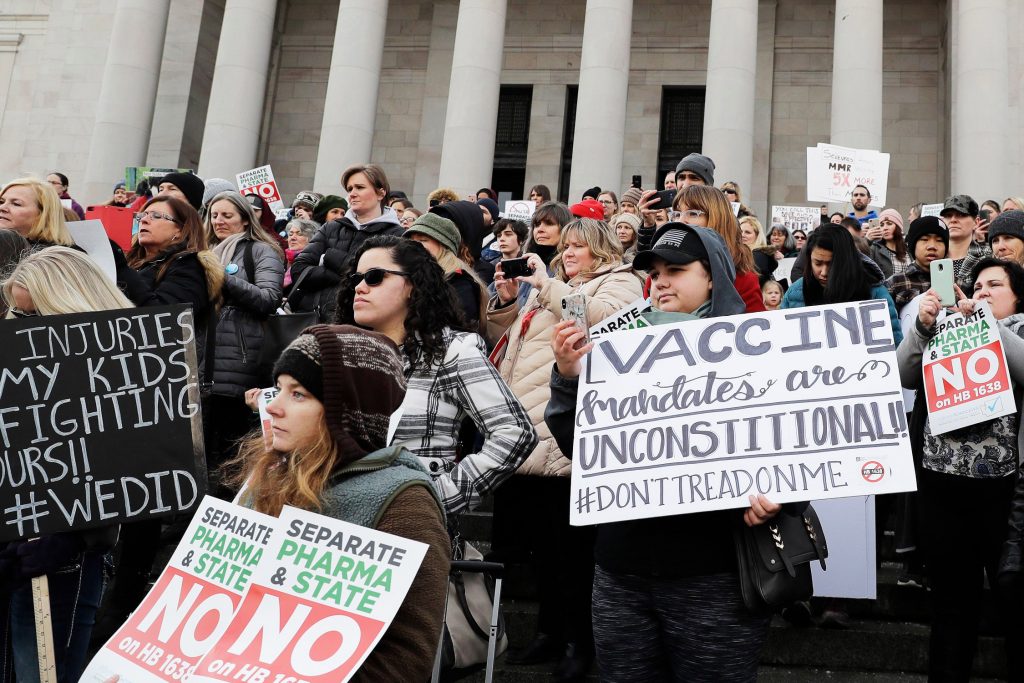When it comes to pandemics and public health problems the key to success in dealing with these is widespread compliance and public cooperation. These are not situations where people can just decide they don’t want to follow the rules.
The coronavirus pandemic has ravaged the globe and decimated the world population: in just over one year, COVID-19 has claimed around two and a half million lives and has mutated into at least two newer and more deadly strains of itself.
The virus has proved to be a formidable enemy, always staying a few steps ahead of the scientists and public health experts but, as these experts have pointed out repeatedly over this last year, that is exactly the challenge with viruses – to stay several steps ahead of them and for this strategy to work everybody needs to listen to the health authorities.
“Public health has to be a shared responsibility – it’s not about individual choice”
Not abiding by pandemic rules and guidelines is the equivalent of switching all your lights on during a blackout in a traditional war – it gives your enemy the advantage of being able to attack and destroy you.
Flouting blackout rules so flagrantly would provoke recrimination and accusations of being irresponsible and unpatriotic, of being a danger to the people in your community and country, yet in the case of the COVID deniers, covidiots and vaccine cynics such careless behaviour is justified on the grounds of individual freedom.
All of last year, there were people grumbling about restrictions and insisting that the virus was a fabrication and that COVID-19 didn’t actually exist. Why governments would conspire to create this fiction was unclear when their own political standing and economies were being badly impacted was not really explained (or thought about) by the deniers.
It was apparently some massive anti-people conspiracy. Restrictions were flouted in many countries in many ways –not wearing masks or not maintaining social distancing, organising illegal raves or going to secret hairdressers etc. Strict rules were declared to be a breach of individual freedoms and the question of liberty was much talked about.
Why were people behaving in such an irresponsible manner? It seems to me that one major factor is that people who have not lived in a world where disease and pandemics are prevalent do not understand the concept of public health and vaccination programmes.
Most people have forgotten the devastation caused by polio, smallpox, measles, mumps, tetanus and so many other diseases and viruses. Instead of regarding vaccinations as a blessing, they view these with distrust and consider them as an infringement of their freedom, a dastardly conspiracy by the authorities. This is true of most anti-vaxxers around the world and has been seen in practice (to deadly and chilling effect) in Pakistan where polio workers have been targeted and killed by the very people whose children they were trying to save.
Then there is the capitalism factor. Capitalism is a selfish philosophy, a dog-eat-dog and every-man-for-himself approach that values individuals in monetary terms. Individuals in turn value everything solely in monetary terms and they tend to measure the worth of themselves and their peers according to the price tags attached to their lives.
In a system where this thinking prevails public health campaigns with free vaccines and free advice are regarded with distrust, the perception is if it’s free and they are coming to us there must be something wrong with it’.
Capitalism has also brainwashed us into thinking that social gatherings, clothes, pomp and ostentation are essential to our wellbeing. What else can explain the ridiculous insistence of people in Pakistan on going ahead with crowded weddings? (the insistence on mosque congregations was just as absurd but fuelled by a curious mixture of capitalist notions of individual liberty with the zealot brand or religion that is prevalent). And what else can explain the illegal raves and parties held in the UK during a lockdown?
Capitalism has given people the idea that ‘choice’ is a basic right for them – whatever the situation. Because of this conviction, they think they can choose not to wear a mask, choose not to have the vaccine and ‘choose’ to do things that will kill or put others in danger (like the police officials who have to raid or restrain them for example).
This is not that surprising considering the political and economic context of these times and it cannot be blamed on just individuals: governments and leaders must take much of the blame for decades of poor civic and public health messaging and remaining in thrall to financial investment, big money and the private sector.
The idea of public health might have been easier to deal with if governments had focused more on the provision of clean water rather than delighting in the sense of prosperity that coffee shops and food franchises lent their economies. The absence of messaging on civic issues has resulted in societies that think they must have rights but no responsibilities. And it is this lack of a sense of collective responsibility that has resulted in this resistance to pandemic measures.
Also, the (misleadingly named) trend of globalisation has resulted in countries becoming more selfish and less willing to work together. The World Health Organisation (WHO) has been increasingly weakened and ignored by a number of countries and was most notably undermined by the US at the beginning of the pandemic. A uniform global approach was not taken and the result is that the virus continues to spread and kill.
If we have learnt anything from this virus and the handling of the pandemic the main lessons must be that we need to listen to the science and that we need to understand the collective responsibility we all have to keep our world safe.







